#on keeping a notebook
Text
Joan Didion writes, in On Keeping a Notebook, that the purpose of keeping a notebook, or a journal for that matter, isn’t because you simply want keep a personal record of things; but because you want to remember the person you were at that specific moment. we write things down on our notebook/journal/diary (whichever one of those you keep) because we want to remember. we want to remember what specific people meant to us on a particular day or hour. or minute. we want to remember our first impression of something (or of doing that something), possibly of someone, too. sometimes we think we’ll “always remember” important events: “I’ll make a mental note of that” etc etc. but in reality everything is fleeting. so Didion says write it down. keep a journal. that way, people, places, and certain events will always be there in case you ever want to come back to them sometime in the future. but also so that they don’t ever haunt you.
#studyblr#literally my new favourite essay#joan didion#on keeping a notebook#writerblr#writeblr#bookblr#booklr
16K notes
·
View notes
Text

#on taking notes#aesthetic notes#academia#how to study#study inspiration#studyblr#studyspo#classification#daily journal#note-taking#on keeping a notebook#keeping a notebook#notebook#journaling#on journaling
23 notes
·
View notes
Text
I started a new blog called @ontakingnotes where I post everything related to, well, taking notes.
My premise has always been that a notebook is a tool of thought. However, the socioeconomic climate today promotes the commodification of self-improvement practices such as journaling, often reducing them to what's see-able, post-able, like-able, and purchasable.
Far from being grudgy and judgemental, I am the first person to post pictures of my notes, journals, etc. I am also trying to be more thoughtful in my consumption, and in my online presence. By that I mean I am trying to be more careful in what I take or give to the (on/off line) community. But I am not self-decieving and that’s why I recognize I will probably keep sharing this kind of content, because it makes me feel good and it is also a form of self-expression.
All that is to say that although the aesthetic part of taking notes is very valuable, it is also hyper-explored. And most importantly, it is not what note-taking is all about, contrary to what retailers want you to think.
If you want to expand your vision of the meaning and the different ways there exist of keeping a notebook, this is for you. In this new blog, you will find inspiring classifications, diagrams, metaphors, and reflections on note-taking and how it might actually change the way you think, and therefore, your life.
#journal#journal daily#notes#on taking notes#how to take notes#how to study#how to read#keeping a notebook#on keeping a notebook#notebook#commonplace book#academia#college#studyspo#studyblr
19 notes
·
View notes
Text
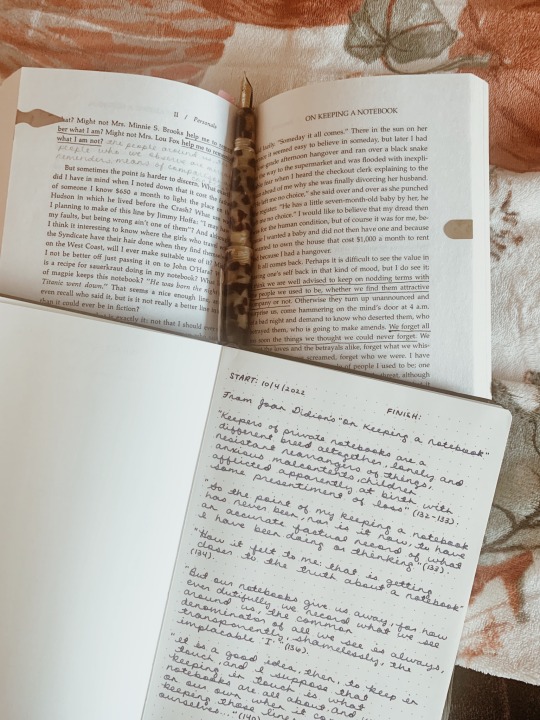
october 4, 2022
i did something very special today: i began a new journal! i haven’t journaled in such a long time, and part of me is worried that fragments of me are lost due to the fact that they were never recorded. but i looked back at Didion’s brilliant essay, “On Keeping a Notebook”. i began this notebook with quotes from her essay as a reminder. writing does not have to be perfect, rigid, factual. sometimes it will be fragmented, long rambles, pictures even. but they will all be a part of me.
#reading aesthetic#fountain pen#studyblr#study#booklr#study aesthetic#reading#books#litblr#literature#journal#reading journal#handwriting#quotes#joan didion#on keeping a notebook#notebook#notebooks
374 notes
·
View notes
Text
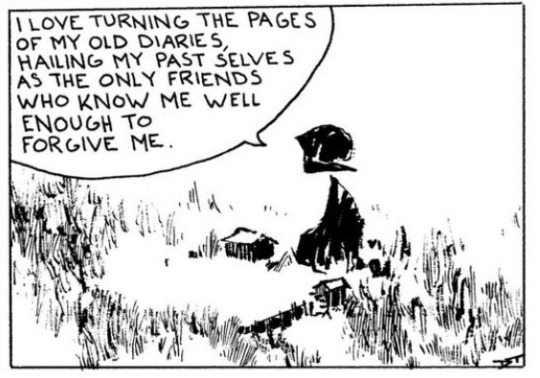
Buttercup Festival
5 notes
·
View notes
Quote
Keepers of private notebooks are a different breed altogether, lonely and resistant rearrangers of things, anxious malcontents, children afflicted apparently at birth with some presentiment of loss.
Joan Didion, “On Keeping a Notebook” (1966) (in “Slouching Towards Bethlehem”)
22 notes
·
View notes
Text
The notebooks were a place to process the tumult of everyday life, but also a kind of laboratory—how could she turn this tumult into writing, into art? She was just beginning to explore how, and why, a self is constructed on the page, and what at first seem to be pages of immediate, confessional musing are in fact a fragmentary, emotionally excessive blend of reportage, dreams, fiction, and memoir. “Fantasy, sensorial perception, dream mixed,” she wrote.
Soon, she would take chunks of these diaries, some short, some long, rewrite them explicitly as poems, and type them up. Like other female poets of the time—Bernadette Mayer, Anne Waldman, and Alice Notley—all of whom she would soon meet at St. Mark’s, she was taking the conversational, quotidian qualities of New York School poetry and giving them an eroticism and sense of duration and perception that were subversive and unabashedly feminine.
Acker also gave this formal slipperiness a kind of ontological weight, for the reader of the notebooks the effect can sometimes be simple confusion. Where does reality begin and fantasy end? What makes a dream different from a memory? How does memory produce a self? What is a fact? What is truth? These are questions she would repeatedly ask in her later fiction, and, indeed, the errant, indeterminate nature of the events she describes in her notebooks confirms what Acker later argues in her novels: that language is inadequate and truth irreducibly complex and unstable. Binary divisions between fantasy and reality, dream and memory, she maintains, are false, simplistic, and unproductive; all these different things inexorably fold in on each other.
For the biographer, though, it means regarding these notebooks, to a certain extent, as enclosed in quotation marks. It means relying on these entries as evidence—of actual events, of Acker’s thoughts, desires, and beliefs—only up to a point, and a point that is in constant motion. At the same time, the fact that Acker fills these pages with such banal incidents, and that her observations usually appear deeply personal, suggests that reading these pages as an approximate factual representation is not unwarranted. The young woman that emerges is herself in flux, and appears, by turns and at once, petulant, defiant, earnest, seething, self-sabotaging, fearful, isolated, longing. From time to time, and especially when discussing her cats or her writing, there are eruptions of elation, even ecstasy. She feels too much, doesn’t feel enough. She has a difficult time meeting people, she hates people. She loves her body, hates her body. She loves New York, hates New York. In one moment, she is completely convinced of the value of her writing; the next, it’s worthless. She craves authenticity while struggling to define what that even means.
Above all, she is constantly questioning—what she thinks, what she does, what she writes and feels and remembers and desires. Even as the entries can feel hurried and harried, for Acker, writing seems to be a way to slow down her pain, to snatch at and examine it.
—Jason McBride, from Eat Your Mind: The Radical Life and Work of Kathy Acker (Simon & Schuster, 2022)
#quotations#jason mcbride#kathy acker#eat your mind#on keeping a notebook#on writing#relevant#currently rereading
2 notes
·
View notes
Text
reading ‘on keeping a notebook’ made me realise that i could simply write all the scant observations that i normally flood my friends inboxes with down. so i did. it felt freeing to write again without constraint after over a decade of forced writing that all too predictably turned to nothing
3 notes
·
View notes
Text
“[from "On Keeping a Notebook"]: It is a good idea to keep in touch, and I suppose that keeping in touch is what notebooks are all about…I think we are well advised to keep on nodding terms with the people we used to be, whether we find them attractive company or not…Remember what it was to be me: that is always the point.”
Joan Didion
4 notes
·
View notes
Text
It all comes back. Perhaps it is difficult to see the value in having one's self back in that kind of mood, but I do see it; I think we are well advised to keep on nodding terms with the people we used to be, whether we find them attractive company or not. Otherwise they turn up unannounced and surprise us, come hammering on the mind's door at 4 a.m. of a bad night and demand to know who deserted them, who betrayed them, who is going to make amends. We forget all too soon the things we thought we could never forget. We forget the loves and the betrayals alike, forget what we whispered and what we screamed, forget who we were.
Joan Didion, On Keeping a Notebook (in Slouching Towards Bethlehem: II. Personals)
41 notes
·
View notes
Text

Unfortunately, I don't know the source of this image but I thought it was too lovely to keep
#on taking notes#on keeping a notebook#on journaling#aesthetic notes#daily journal#notebooks#other people’s journals#academia#how to study#study inspiration#studyblr#studyspo#classification
8 notes
·
View notes
Text
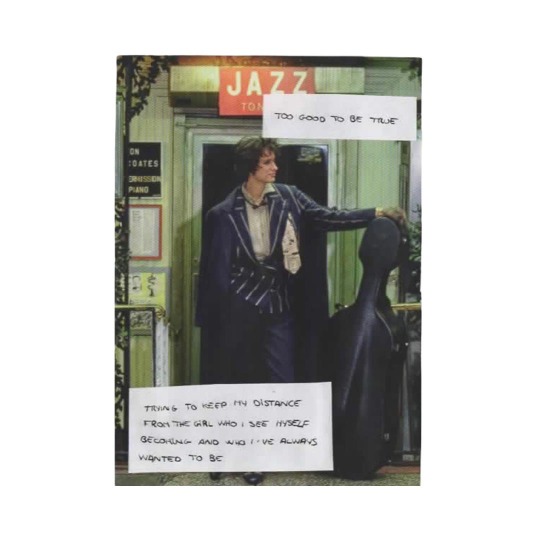
Journal scan pt. 1
#my journal#journal daily#journal inspiration#journal inspo#journal#collage#pages#journal pages#flip through#art journal#journalette#journaling#on journaling#on keeping a notebook#on taking notes#keeping a notebook#taking notes
5 notes
·
View notes
Text
all the updates from al shifa right now are just "we're waiting to die" I feel so sick
#everyone else keeps debating and holding meetings and giving empty statements when all of this could stop with one phonecall#i feel like I'm going insane#palestine#notebook
10K notes
·
View notes
Text
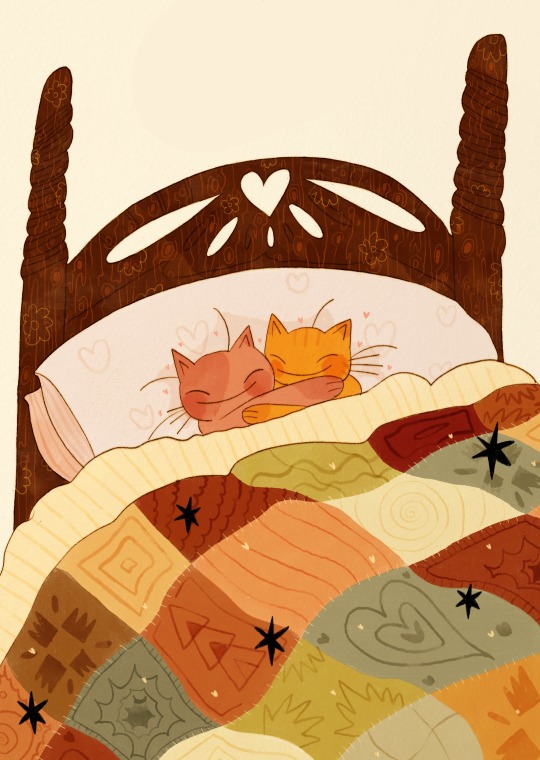
to be loved is to be held!!! print
#mine#cats#i made into. a5 print!!#i will still stock th larger one for now....i lov a5 tho its so nice. so compact#i had a good day today! went into the city and got notebooks and sticker and a poetry book i am going to hvae to read very very slowly#i can beat dyslexia . i can win#it is very cold also. perhaps will hve a bath tomorrow! and do some drawing :3#i hope everyone has a nice evening#if u are wondering how cat is doing he is settling in good ! he keeps clawing at the furniture but hey. thats a cat
7K notes
·
View notes
Text

That's all that's left. Fifty-seven pages of research, two bottles of morphine and one ticket back to the Capital.
The train departs at dusk.
An illustration for a Patho AU inspired by Bulgakov I'll probably never write properly but it's been worming in my brain for over two years now.
#pathologic#pathologic 2#daniil dankovsky#pathologic bachelor#patho bulgakov AU#this piece has been in my WIPs for at least a year too#finally finished it properly#I'll keep shoving A Young Doctor's Notebook and Morphine into Patho fans' faces#there are film adaptaions too#I enjoyed both but the british TV series is more easily digestable#the russian film is a heavier watch#but the book is the best#it's short too#highly recommend it
896 notes
·
View notes
Text
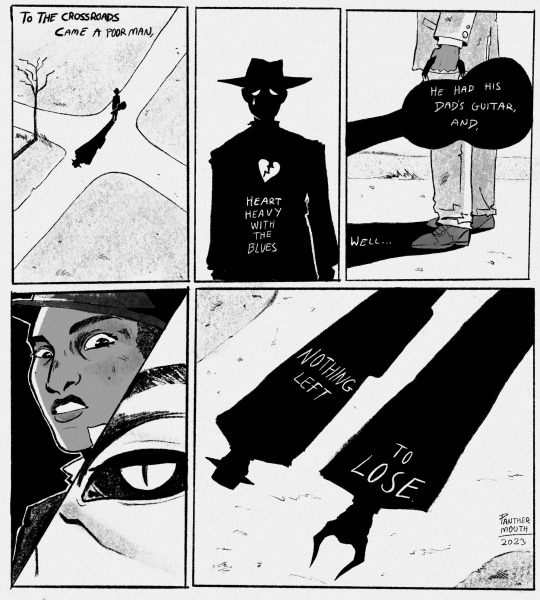
And I said, “Hello, Satan
I believe it’s time to go.”
#my art#southern gothic#been too depressed to create anything but I’ve made this today#the little rhyme has been in my head for a few weeks#spilled ink#I guess do people still use that tag for poetry or am I old lol#I’ve been writing in my journal pretty much daily and sometimes spitting out little poems like this#not much energy for art#so I’m not gonna pressure myself to keep it up#I’m just gonna enjoy the fact that I made this#I hope ur all well <33#the devil#by the way this isn’t meant to be fan art of Robert Johnson#but it’s inspired by him and the stories of musicians who sell their souls to the devil#I am still thinking very hard and have mostly drafted a cornstalk fiddle comic#god knows how long it’ll stay in a notebook haha#my comic#comics
2K notes
·
View notes